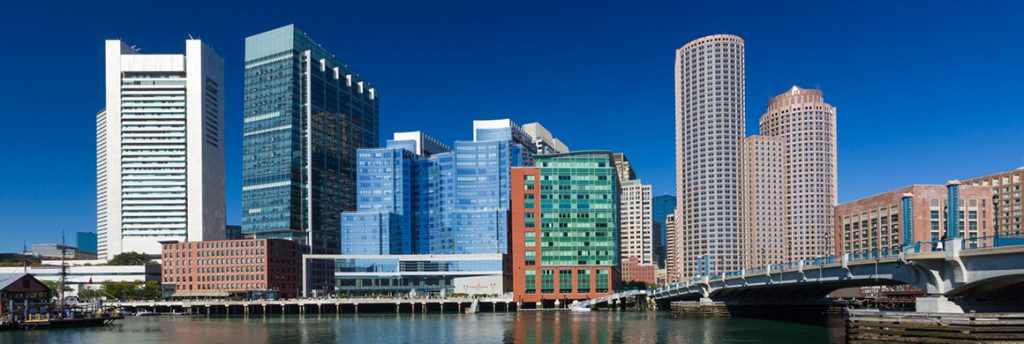Are you a working professional in the Boston metro who wants to really start climbing the corporate ladder? Do you have significant managerial experience, and think you’re ready to take the next step and assume a leading role in your organizations. Then a Boston Executive MBA (EMBA) may be what you’re looking for.While standard full-time MBAs offer students access to deeper coursework and more job recruiters, EMBA programs are tailored to teach skills that can be translated to a student’s current job and allow for growth within a company.
Many EMBA students have been identified as potential leaders at their companies. Some employers may will allow students to pursue their education while still getting full pay, and a majority of employers will even pay for the degree. EMBA classes are typically offered on weekends, ensuring that those enrolled in these programs don’t miss much, if any, work.
If you want to break into the C-suite, gather strategic insights for your organization or meet a network of other professionals in your metro, an EMBA program is the right option for you. Here’s some background on the EMBA offerings in the Boston metro.
Questrom School of Business – Boston University
Founded in 1913, the Boston University School of Management was renamed the Questrom School of Business in 2015 in honor of a $50 million endowment gift from alumnus and retail industry leader Allen Questrom, his wife, Kelli and the Allen and Kelli Questrom Foundation.
The school began offering MBA courses in 1925 and today, the school offers eight different programs related to the MBA degree. Along with the traditional full-time MBA, part-time MBA and Executive MBA, students can seek out a Health Sector MBA or a Public & Nonprofit MBA, either full or part-time and a one-year International MBA.
The average Boston University Executive MBA student age is 42 with 17 years of work experience and 11 years of managerial experience, and graduates have access to the 900 EMBA alumni spread across the world. Alumni have free access to career counseling for two years after graduating as well as alumni events, such as the annual Alumni Lecture Series.
Sawyer Business School – Suffolk University
Named after Frank Sawyer, a Suffolk University donor and Boston-area entrepreneur, the Sawyer Business School at Suffolk University is AACSB accredited in business, accounting and taxation. While Suffolk University was established in 1906, the Business School opened in 1937 and began offering the MBA degree in 1948. Suffolk founded its Executive MBA program in 1975 and its Online MBA program in 1999.
The Suffolk EMBA program spans 16 months, with classes meeting in Boston on Saturdays, with some additional online classes. The EMBA is divided into four clusters, and although there are breaks between clusters, EMBA students take courses throughout the 16 months, including during a summer term. Here’s a what you can expect:
- Cluster 1: Managing Through People
- Cluster 2: Analytical Skills for Decision Making-
- Cluster 3: Understanding the Marketplace
- Cluster 4: The Firm and Its Environment
The cohort-based program also features four residential seminars, which range in length from three to seven days:
- Personal Leadership Seminar
- Leading Teams Seminar
- Washington Policy Seminar
- Global Travel Seminar
More than 150 students are enrolled in the Sawyer Business School’s MBA program each year, with each cohort comprised of 25 students.
Sloan School of Management – MIT
Many think of MIT as just an engineering school, but the prestigious university is also home to great business programs at the Sloan School of Management. The school grew out of a single course, “Engineering Administration,” which was established by MIT’s Department of Economics and Statistics in 1914. Master’s programs in management started in 1925 and became the separate Department of Business and Engineering Administration in 1930. The school was named in 1962 in honor of Alfred P. Sloan, the Chairman of General Motors, who donated $5 million to MIT to establish a School of Industrial Management. Today, Sloan offers full-time and Executive MBA programs, including the global Sloan Fellows program.
The Sloan EMBA program is a 20-month, “mid-career” program designed for executives and managers who have significant professional experience. Classes meet on Friday and Saturday every third weekend, with a week-long module course every six months. In total, the program features 25 weekend sessions and five week-long module courses. The modules are:
- Leadership and Integrative Management
- Innovation Driven Entrepreneurial Advantage
- Leading in a Global Context
- Leading Complex Organizations
The program also features the Organizations Lab, in which students apply the lessons they have learned in the first half of the program to their current organization, and the Global Organizations Lab, in which students travel abroad in teams for a week to work with an international company. Students are also given the opportunity to take one or two elective courses each January and during the spring of the program’s second year.
